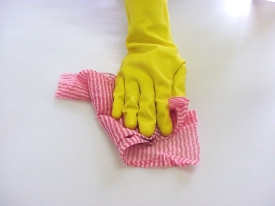So you’re afraid to buy property that might have some environmental issues because you hear that you could be on the hook for the cost of cleaning it up. What if I told you that’s not necessarily true, and that maybe, just maybe, if you took the proper steps, you might be able to avoid that potential liability.
In January 2002 the law that imposes liability on the current owner of property was amended. The amendment clarified liability issues which had been troubling those buying (and lending money to buy) real estate. It created a new defense, known as the bona fide prospective purchaser defense, which allows someone to buy property even if they know it is contaminated, while leaving the cost of cleaning it up to someone else.
However, as in physics, with every action, there is an equal and opposite reaction. So, to take advantage of the new defense, the purchaser is required to do some things when purchasing the property. Some of those things must be done before closing on the property; others must be done after the sale is final.
The prerequisites
To be eligible for the bona fide prospective purchaser defense, you can’t be affiliated with any party who is potentially responsible for the contamination at the property. That means you can’t be a stockholder of, a family member of, a friend helping a friend of, or have any relationship with the person who caused the pollution at the property. The pollution also had to have occurred before you bought the property.
In addition, and perhaps most importantly, you must have taken “all appropriate inquiry into the environmental condition of the property.” That sounds a little intimidating, but it really isn’t because the amendments tell you what you have to do. So, to satisfy this part of “the prerequisites,” you need to hire someone to perform something called a Phase I assessment which follows certain rules. I don’t have time to cover all those rules, but it’s enough to know that you (or your lawyer) must ask an environmental consulting firm to do an audit that either follows the requirements of ASTM 1527-05, or the regulations promulgated by EPA as they were required to do by the amendments. Because EPA has said that compliance with ASTM 1527-05 will be appropriate due diligence, most pre-purchase property reviews will follow ASTM rules because that is what the consulting firms know.
Keep in mind that because this step is required to establish the defense, the rules have to be followed. If the Phase I does not comply with the ASTM Standard (or the regulations promulgated by EPA), you will lose your defense. Therefore, someone who knows the rules really well should check the work of the consultant to make sure that, in addition to the technical findings, the consultant addressed everything the rules require. This is really a big deal because a recent EPA study showed that almost all of the Phase I reports it reviewed were defective. So, in each of those cases, the buyer would have lost their defense and would be required to clean up the property.
The post-requisites
Assuming you’ve followed the rules for the prerequisites, you still have the post-purchase obligations. The amendments outline several steps you have to take after you buy the property. They are:
- You must take reasonable steps to stop any continuing release;
- You must prevent any threatened future release;
- You must provide all legally required notifications (which may or may not be limited to environmental reporting);
- You must prevent or limit any human, environmental, or natural resource exposure to any previously released hazardous substance; and
- You must be in compliance with land use restrictions or institutional controls in order to maintain the new defense.
So, you have to follow these rules too in order to avoid cleaning up someone else’s mess. These rules have to be followed even if you followed all the prerequisite rules.
Unfortunately, every property is different, so what you might have to do will vary. I’ll talk about these post-requisites in my next post.

